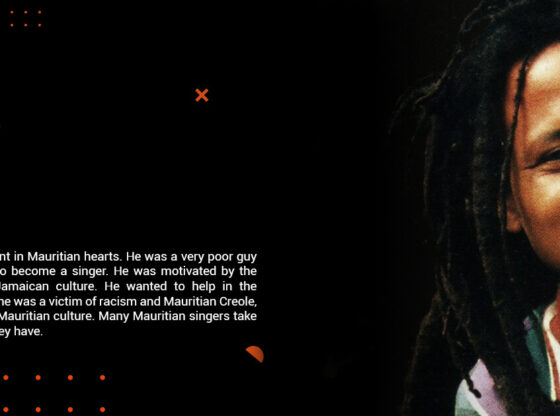Today i.e. 21st February is the death anniversary of the famous Mauritian singer – Kaya so we thought we will write an article in his tribute.
In March 1999, Mauritius was rocked by riots that highlighted deep social and ethnic divisions within the island nation. The unrest, which led to violence and destruction, was sparked by the tragic death of a popular singer, Kaya. His demise not only marked a significant moment in the country’s history but also ignited a dialogue about race, identity, and social justice that resonates in Mauritian society to this day.
Background
Mauritius is known for its rich tapestry of cultures and ethnicities, predominantly comprising Indo-Mauritians, Creoles, Chinese, and Franco-Mauritians. While this diversity is a source of pride, it has also led to social tensions and disparities, particularly between different ethnic groups. The Creole community, in particular, had long felt marginalized and underrepresented in political and economic spheres.
Kaya was not just a pop star; he was a voice for many in the Creole community. His songs often addressed issues of identity, social inequality, and cultural pride, resonating with the struggles many faced. Kaya’s music became synonymous with the fight for recognition and respect, making him an influential figure among the youth.
The Death of Kaya
On February 21, 1999, Kaya was arrested during a police raid at a party where illegal drugs were allegedly present. He died in police custody under suspicious circumstances just days later, on February 23. His family and supporters claimed that he had been beaten by police officers, sparking outrage among his fans and the larger Creole community.
The news of Kaya’s death spread quickly, igniting emotions that had been simmering beneath the surface. His funeral on February 26 turned into a massive rally, where thousands gathered to pay their respects and express their anger at what they perceived as systemic injustices and discrimination faced by the Creole population.
The Riots Erupt
Following Kaya’s funeral, riots broke out in various parts of the island, particularly in urban areas like Port Louis and Rose Hill. Demonstrators clashed with the police, leading to violent confrontations and vandalism. The protests quickly escalated, resulting in widespread looting, the burning of buildings, and damage to public property. The chaos lasted for several days, leaving a troubling mark on the community.
The riots brought to light longstanding grievances regarding socio-economic disparities, policing practices, and ethnic tensions. The government’s response was often criticized as heavy-handed, with many feeling that it further fueled resentment and division.
Aftermath and Reflection
The 1999 riots marked a watershed moment in Mauritian history. They opened discussions about the socio-political landscape of the country and the need for greater representation and equity among different communities. In the aftermath, there were calls for reforms, including better policing practices and more inclusive policies to bridge the divides between ethnic groups.
Kaya’s legacy lives on as a symbol of resistance and cultural pride, inspiring new generations of musicians and activists. His music continues to be celebrated, and he is remembered not just for his artistic contributions but also for his role in highlighting the struggles of the Creole community. Various tributes and events are held annually to commemorate his life and the events surrounding his death, reminding the nation of the importance of unity and understanding.
Today, Mauritius is a very safe place and no such riots happen across the island, and all the people should work towards maintaining it.
You can listen to some of his tracks here https://otayo.com/en/artists/kaya/
